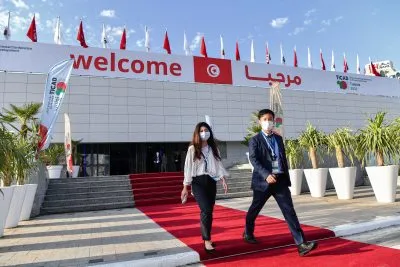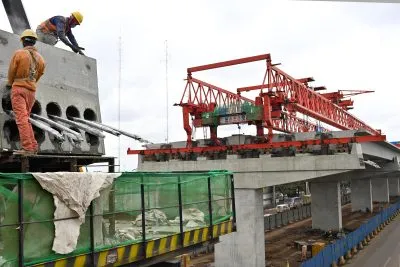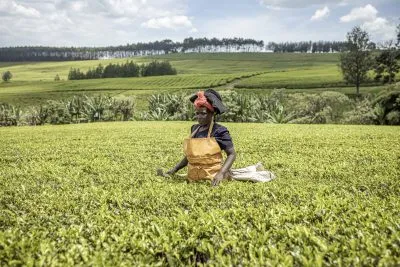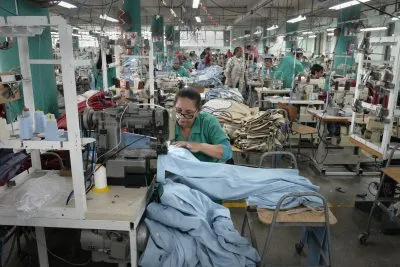As hundreds across Nigeria continue to protest against police brutality for the seventh day, businesses say the unrest is disrupting activities which are already hard-hit by the coronavirus.
The protests and the government response have brought Lagos and Abuja to a standstill, disrupting agricultural supply chains and blocking the movement of people and goods, says Toheeb Abdulsalam, chief executive of agritech business Farmignite.
“With the current protests and roadblocks we’ve been finding it difficult to move our products. Also on a day-to-day basis people cannot make it to work and move around the states,” says Abdulsalam, whose business connects international professionals with access to farmland, crops, cultivation and marketing within Nigeria.
“It’s affecting a lot of businesses as people are finding it difficult to get to their destinations in time. Two days ago, I was coming from the factory and I spent six hours in traffic.”
The disruptions have added to the economic slowdown caused by Covid-19, which has caused many businesses to downsize or close, Abdulsalam adds.
While the economic impact of the protests remains “limited for now” says Virág Fórizs, emerging markets economist at Capital Economics, “sustained demonstrations or an escalation could prove much more disruptive and add to the economic pain from the coronavirus crisis and low oil prices.”
The nationwide demonstrations began on 6 October after footage of Special Anti-Robbery Squad (SARS) officers dragging two men from a hotel and shooting one of them sparked outrage online.
Despite the presidency’s dissolution of SARS “with immediate effect” on October 11, protests continue to impact business, social media activist Segun Awosanya, known as Segalink, told Africa Independent Television on Wednesday.
“Yesterday it was confirmed that the presidency adopted every single thing that has been demanded. Protests are carrying on, and there are people who are remaining outside regardless…We must draw the line somewhere. There are people whose businesses are collapsing now.”
Entrepreneur Abdulsalam, who says he stands firmly with the protesters and has attended rallies in Lagos, says that while the presidency has agreed to some of the movement’s demands, protesters remain on the streets due to concerns over the presidency’s claim that the police units will be “redeployed.”
“On paper it has been disbanded but in reality it has not, and that is why the protests are carrying on,” Abdulsalam says.
Government promises of police reforms first in 2017, and then in 2018 came to nothing, he added.
“Why should this time be different? We want for them to be ended totally and for former SARS members to be barred from being incorporated into the police force.”
The head of Nigerian police Mohammed Adamu on Wednesday unveiled SWAT, a new police unit to replace SARS, sparking outrage and a new social media hashtag #EndSWAT.
In a statement the national police force “ordered all personnel of the defunct SARS to report at the Force Headquarters, Abuja, for debriefing, psychological and medical examination. The officers are expected to undergo this process as a prelude to further training and reorientation before being redeployed into mainstream policing duties.”
“Secret call” between Nigerian business tycoons and activists
Meanwhile talks between businesses and activists have been arranged as the impasse continues. Nigerian billionaire and tycoon Aliko Dangote joined a Zoom call on Tuesday with Nigerian governors, the Central Bank of Nigeria (CBN) governor Godwin Emefiele, businessman Tony Elumelu, and Dipo Awojidea, a UK-based Nigerian lecturer who co-led London protests against SARS. The call was confirmed by Awojidea.
“I spoke the truth in the meeting. I challenged the governors and government,” he said.
The Dangote Group did not respond to requests for confirmation of the call and what was discussed.
Formed in 1992, SARS is an undercover police unit that was set up to combat violent crime. It gained notoriety after accusations of illegal arrests, sexual harassment and extrajudicial killing, as well as for its policy of stop and search. An online campaign using the hashtag #ENDSARS was founded in 2017 and peaceful protests had been held across the country prior to the current round.
Want to continue reading? Subscribe today.
You've read all your free articles for this month! Subscribe now to enjoy full access to our content.
Digital Monthly
£8.00 / month
Receive full unlimited access to our articles, opinions, podcasts and more.
Digital Yearly
£70.00 / year
Our best value offer - save £26 and gain access to all of our digital content for an entire year!
 Sign in with Google
Sign in with Google 




